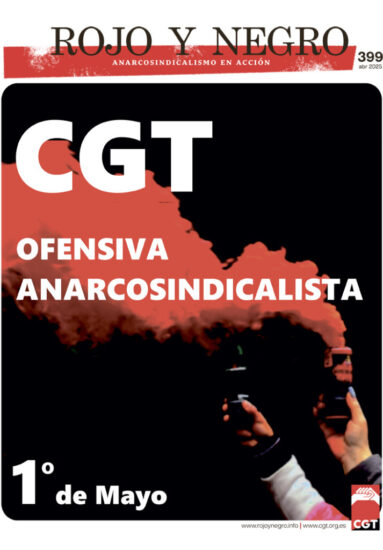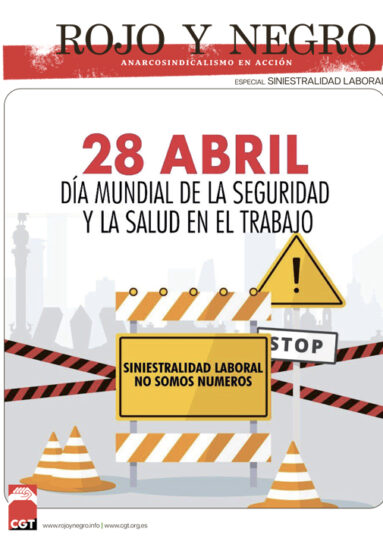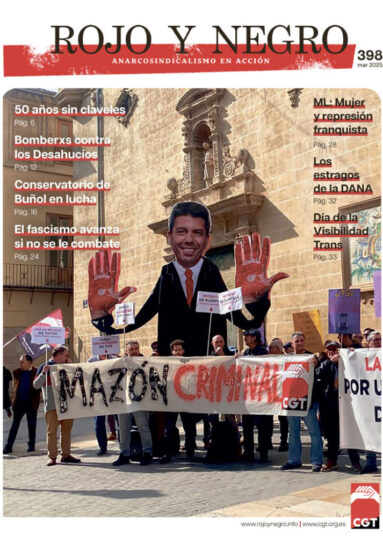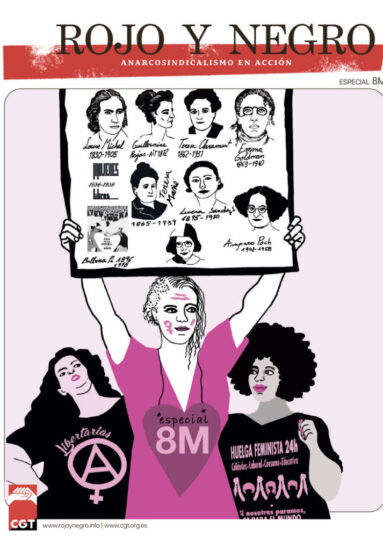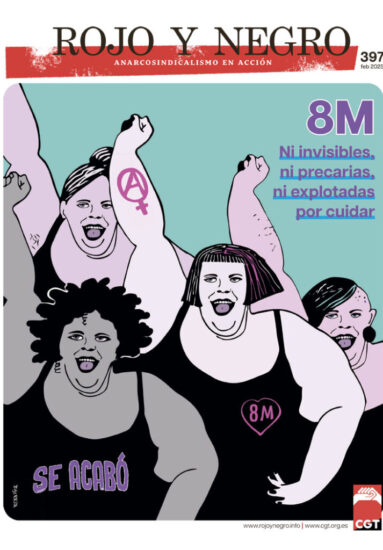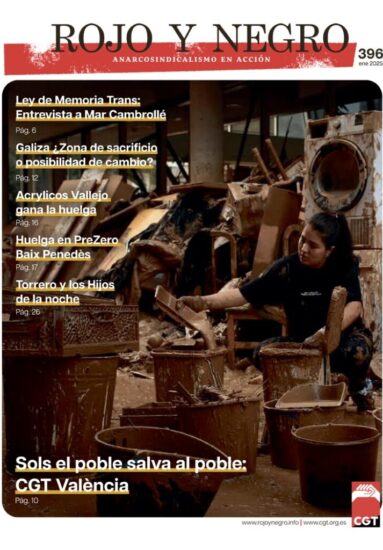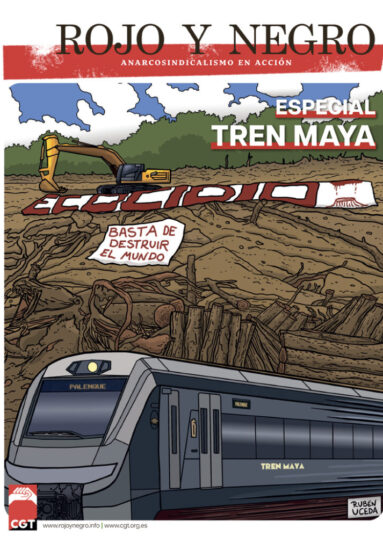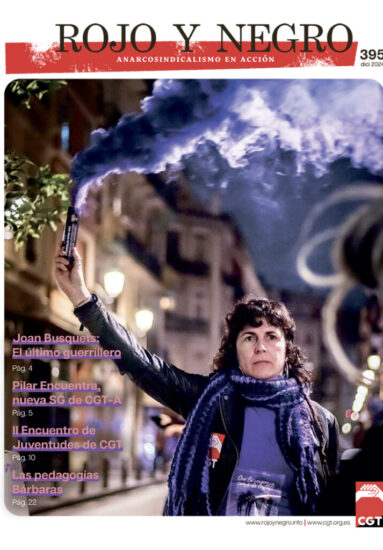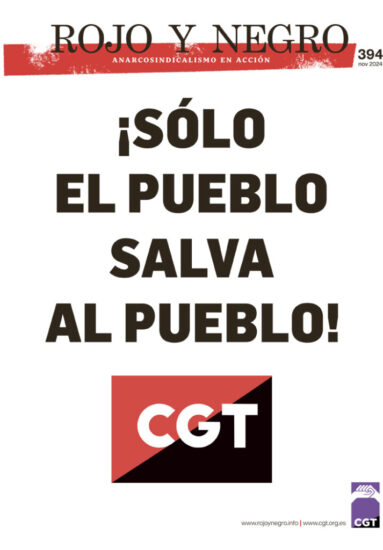The AIE is satisfied with the Russian decision to stop the war in Georgia. We at the
same time criticise President Bush’s aggresive talk against Russia and the
autonomous republics of Abkhazia and South Ossetia. Georgia is a right fascist
state, and not at all a real democracy as Bush suggests. Adolf Hitler was also
«democratically» elected, similar to Mikhail Saakashvili . However we mean the
fascist regime in Georgia must be done away with by a popular velvet revolution, not
by Russian arms. We hope this velvet revolution soon will happen, because the people
in Georgia must see that Saakashvili’s militarist attack on the autonomous republics
of Abkhazia and South Ossetia and horrible war crimes in this connection, is clearly
authoritarian and fascist, and not according to the will of the Georgian people seen
as a class, as opposed to the superiors in private and public sector. Saakashvili’s
war crimes must be punished in accordance with international law.
The situation in Georgia
The region of present-day Georgia contained the ancient kingdoms of Colchis and
Kartli-Iberia. The area came under Roman influence in the first centuries A.D. and
Christianity became the state religion in the 330s. Domination by Persians, Arabs,
and Turks was followed by a Georgian golden age (11th-13th centuries) that was cut
short by the Mongol invasion of 1236. Subsequently, the Ottoman and Persian empires
competed for influence in the region. Georgia was absorbed into the Russian Empire
in the 19th century. Independent for three years (1918-1921) following the Russian
revolution, it was forcibly incorporated into the USSR until the Soviet Union
dissolved in 1991. An attempt by the incumbent Georgian government to manipulate
national legislative elections in November 2003 touched off widespread protests that
led to the resignation of Eduard Shevardnadze, president since 1995. The so called
Rose Revolution, followed by new elections in early 2004 swept Mikhail Saakashvili
into power along with his National Movement party, a right fascist movement .
Economical plutarchist market reforms and a slight democratization has been made in
the years since independence, but this develeopment has been complicated by two
civil conflicts in the breakaway regions of Abkhazia and South Ossetia. These two
territories remain outside the control of the central government and are ruled by de
facto, unrecognized governments, supported by Russia. Russian-led peacekeeping
operations continue in both regions. The Georgian government put forward a new peace
initiative for the peaceful resolution of the status of South Ossetia in 2005.
At least one-third of the Georgian population lives below the poverty line, the
official unemployment level is 16% (real unemployment is said to be considerably
higher) and the pension is Euros 16 per month. Changes to the labour law mean that
workers can be fired without any explanation or effective recourse, leading to
widespread dissatisfaction over the government’s performance. The labor laws are
leading to fear and uncertainty amongst working people and their families, and the
absence of social dialogue and basic rights and freedoms compounds this. Unless
Georgia fundamentally changes direction to become a stable democracy, the situation
will only get even worse.
Saakashvili’s term as president has seen Georgia strengthen its ties with NATO and
the European Union. But relations with Moscow have soured and Georgia’s economy has
been badly hit by a Russian ban on Georgian goods. Georgia’s snap presidential
election 05.01.2008 was called by president Mikhail Saakashvili after huge
opposition rallies in November resulted in violent unrest and a temporary state of
emergency. Georgia’s president «won the election», but many voters worry about
enduring poverty despite economic growth. But opposition candidate Levan
Gachechiladze has accused the authorities of trying to rig the vote. The authorities
have denied this but the BBC’s Matthew Collin in Tbilisi says that after a bitter
and divisive election the dispute seems certain to continue. Mr Gachechiladze got
about 25% of the vote. Along with the presidential election, Georgians were asked to
vote on whether they should have a parliamentary election in the coming months, and
whether the country should join NATO. Hundreds of foreign observers were monitoring
the ballot. The president’s opponents charge him with presiding over economic
mismanagement and corruption and adopting authoritarian ways.
All in all this has made the system more capitalist, and somewhat reduced the degree
of statism. Georgia has a powerful president (the president is both the chief of
state and head of government for the power ministries : state security (includes
interior) and defense) and a parliamentary system that is democracy only in the
name, not in reality. The economic-political system of Georgia works very
significantly from the top downwards to the bottom, grassroots, all in all very
significantly vertically organized economical and political/administrative. A life
expectancy at birth at 70,5 years (2003) combined with a quite repressive
political/administrative system in general, contribute to a significant, but not
extreme, degree of statism.
The gini-index is estimated to ca 40,4 indicating it is very significantly a
capitalist country, almost as economical plutarchist as the USA, with a gini-index
at 40,8. The system is also quite inefficient with a GDP per capita at 778 US $ per
year (2003), and this also contributes to a low degree of socialism. Air pollution,
particularly in Rust’avi ; heavy pollution of Mtkvari River and the Black Sea ;
inadequate supplies of potable water and soil pollution from toxic chemicals also
contribute to a high degree of capitalism.
The degree of capitalism is estimated to ca 75,4 % (ca 24,6% socialism) and the
degree of statism is estimated to ca 66,9 % (degree of autonomy is ca 33,1 %), and
thus the libertarian degree is estimated to ca 28.7 % (the authoritarian degree is
ca 71,3 %). The system is all in all clearly totalitarian, located in the
right-fascist sector of the fascist quadrant of the economic-political map, see
http://www.anarchy.no/a_e_p_m.html . Georgia has rank no 103 on the ranking of
countries according to libertarian degree, see http://www.anarchy.no/ranking.html .
06-07.01.2008 : Monitors hail Georgian election. The presidential election in the
former Soviet republic of Georgia was broadly «democratic», but had shortcomings,
international observers say. The verdict came from the Organisation for Security and
Co-operation in Europe after a snap vote called by president Mikhail Saakashvili.
The election commission said he won about 53% of the vote, – and he will not have to
contest a second-round run-off. Thousands of opposition supporters have gathered to
protest, claiming the result was rigged. Mr Saakashvili, 40, was an icon of the 2003
«Rose Revolution» – the name given to the largely peaceful uprising against his
predecessor, former Soviet Foreign Minister Eduard Shevardnadze. His opponents say
he now exhibits the very authoritarianism he once challenged. Election of a
significant ruler is not real democracy. The Anarchist International has solidarity
with the people in Georgia as opposed to the economic and political/administrative
upper classes, and supports their actions to do away with the fascist regime, and
increase the libertarian degree in the country.
13.01.2008. Rally against Georgia poll result : Thousands of opposition supporters
have taken to the streets in Georgia in protest at what they say were rigged
presidential elections last weekend. Those gathered in the capital, Tbilisi, are
demanding a second round of voting. A large crowd filled central Tbilisi’s main
square, stamping their feet against the cold and chanting slogans against Mikhail
Saakashvili. The opposition hopes to mount a show of strength aimed at overturning
the election results. They allege that the polls were falsified to keep Mr
Saakashvili – who is set to be inaugurated in a week’s time – in power. But most of
the opposition’s complaints about alleged violations have been rejected by the
Georgian election commission and the courts. The BBC’s Neil Arun, who was at the
rally, said much of the protesters’ anger was directed at Western observers who have
said the polls were essentially «democratic», although there were significant
problems. The authorities have warned the demonstrators they will not tolerate any
more civil unrest.
20.01.2008. Georgia leader starts second term. The charismatic, Western-backed
Mikhail Saakashvili has begun his second term as the president of the former Soviet
republic of Georgia. After being sworn in he met Russia’s foreign minister, with
both countries saying they wanted improved ties. Thousands of opposition protesters
held a rally claiming the 5 January poll was rigged. Mr Saakashvili saw his support
almost cut in half at the elections. His radical «free»-market reforms during his
first term of office have caused widespread discontent. 04.02.2008. The Anarchist
International continues to support the Georgian people in their fight against the
fascist regime of Mikhail Saakashvili. 15.02.2008. Around 20,000 people protested in
central Tbilisi against Georgian President Mikhail Saakashvili, the largest
demonstration against the revolutionary leader since he was sworn in for a second
term last month. Protesters wore their trademark white neck-scarves at the rally
outside parliament. Georgia’s main opposition parties have staged a series of
demonstrations since the January 5 presidential election which they say Saakashvili
rigged. Western monitors said the vote was flawed but still reflected the will of
the electorate. The opposition have threatened to set up a tent city outside
parliament to protest against the election. 16.01.2008. The Anarchist International
supports the opposition’s demonstrations against the fascist regime, and will
continue to support non-violent actions against it.
Anarchist support to the autonomous republics of Abkhazia and South Ossetia against
the authoritarian, fascist rule of Mikhail Saakashvili
The conflict between Russia and the autonomous republics of Abkhazia and South
Ossetia on the one hand, and the authoritarian fascist/nationalistic lead former
Soviet republic of Georgia, moved toward full-scale war on Saturday 09.08.2008, as
Russia sent warships to land ground troops in the disputed territory of Abkhazia and
broadened its bombing campaign across Georgia. The fighting that had sharply
escalated when Georgian forces tried to retake the capital of South Ossetia, the
pro-Russian region that won de facto autonomy from Georgia in the early 1990s,
appeared to be developing into the worst clashes between Russia and a foreign
military since the invasion of Afghanistan in 1979.
Shortly before dawn on Sunday 10.08.2008, Georgia’s Interior Ministry said that
Russian bombers had begun striking military facilities adjacent to the civilian
airport at Tbilisi. The explosions could be heard in the city, said Shota
Utiashvili, a ministry official. He said that Russia had built up large forces in
Abkhazia and South Ossetia – breakaway regions that have support from Moscow –
including as many as 300 artillery pieces in South Ossetia alone. Russian forces, he
said, were also poised just over the border at Larsi, a checkpoint, where they could
open a third line of ground attack. As Russia moved more forces into the region and
continued aerial bombing, it appeared determined to occupy both South Ossetia and
Abkhazia. Georgia’s fascist president, Mikhail Saakashvili, said Russia’s ambitions
were even more extensive. He declared that Georgia was in a state of war, and said
in an interview that Russia was planning to seize ports and an oil pipeline and to
overthrow his government.
Prime Minister Vladimir V. Putin of Russia left the Olympics in China and arrived
Saturday evening in Vladikavkaz, a city in southern Russia just over the border.
State-controlled news broadcasts showed Mr. Putin meeting generals, suggesting that
he was directly in charge of military operations.Mr. Putin said that dozens of
people had been killed in South Ossetia and hundreds wounded, and tens of thousands
were reported to be fleeing. Georgia’s health minister said that more than 80 people
had been killed, including 40 civilians who died in airstrikes in Gori, a city north
of Tbilisi. Another Georgian official said at least 800 people, almost all of them
civilians, had been injured. Each side’s figures were impossible to confirm
independently, as was an earlier claim released by South Ossetians and repeated by
some Russian officials that 1,500 people had been killed in the territory.
The fighting, and the Kremlin’s confidence in the face of Western outcry, had wide
international implications, as both Russian and Georgian officials placed it
squarely in the context of renewed cold war-style tensions and an East-West struggle
for regional influence. Western influence over Russia appeared minimal. The East and
West were stuck in diplomatic impasse, even as reports of heavy civilian casualties
indicated that the humanitarian toll was climbing. The United Nations Security
Council was meeting Saturday to discuss the crisis, but with no resolution. Georgian
officials said their only way out of the conflict was for the United States to step
in, but with American military intervention unlikely, they were hoping for the West
to exert diplomatic pressure to stop the Russian attacks.
«Georgia is a sovereign nation, and its territorial integrity must be respected,»
President Bush said at the Olympics in Beijing. «We have urged an immediate halt to
the violence and a stand-down by all troops. We call for the end of the Russian
bombings.» No surprise to anarchists, USA has supported a lot of fascist regimes
many times in history. Senior European Union officials were adamant on Saturday that
both Russia and Georgia were to blame for the recent escalation of the conflict, and
that finger-pointing was counterproductive. Cristina Gallack, a spokeswoman Javier
Solana, the European Union’s foreign policy chief, said that the Union’s immediate
objective was to reach a cease-fire, and European envoys were reported to be en
route to the region. Other Western officials monitored the movements with alarm.
«The record is crystal clear,» said a Western official, who spoke on condition of
anonymity. «Russia has launched a full-scale military operation, on air, land and
sea. We have entered a totally new realm – politically, legally and diplomatically.»
Russia appeared to be opening a second front in Abkhazia, to the west of South
Ossetia, and to be aiming to drive Georgian troops from the Kodori Gorge, a small
mountainous area in Abkhazia that Georgia reclaimed by force in 2006. Georgian
officials said 12 Russian jets were bombing the area, shortly after a Western
official said United Nations peacekeepers had withdrawn from the area at the request
of Abkhazia’s de facto government. Russia also notified Western governments that it
was moving ships of its Black Sea fleet to Ochamchire, a port on the Abkhaz coast.
Georgian officials said they expected Russian troops to land there. Mr. Putin made
clear that Russia now viewed Georgian claims over the breakaway regions to be
invalid, and that Russia had no intention of withdrawing. «There is almost no way we
can imagine a return to the status quo,» he said in remarks on Russian state
television.
The Anarchist International declares full support to the autonomous republics of
Abkhazia and South Ossetia against the authoritarian, fascist/nationalistic rule of
Mikhail Saakashvili . The fascist president of Georgia must stop all militarist
attacks on the autonomous republics of Abkhazia and South Ossetia. Stop the war !
[This note is adopted as a resolution by the Anarchist International and sent to
anarchists, syndicalists, media and mandated persons world wide, included the main
Georgian labor confederation contact@gtuc.ge , the Georgian embassy in Copenhagen
copenhagen.emb@mfa.gov.ge , civilgeorgia@una.ge and gtze@messenger.com.ge . This
resolution is also published on http://www.anarchy.no/andebate.html . Source IIFOR]
We send the assurances of our greatests appreciations
Yours sincerely
Chargé d’affaires G. Johnson of AIE
The Anarchist International Embassy in Oslo
l’ambassade du monde libertaire
http://www.anarchy.no/embassy.html



